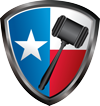
Dino Marcaccio
Former Texas Comptroller State Tax Auditor, 16 Years
On any windy day in the Permian Basin, Eagle Ford Shale, or the Barnet shale areas, the unmistakable smell of oil and gas is clearly evident in the air. When money is flowing in hand over fist, it is easy to overlook the expense side of oil production, the development of a lease, building roads, building a pad, drilling the well, casing the well, and completing the well site with flow lines, processing equipment, and storage tanks for produced water and oil. However, this equipment on the lease site is subject to exposure to the elements along with exposure to the corrosive nature of the produced water, oil, and gas, thus requiring ongoing maintenance and detection of leaks in the wellbore, casing, flow lines, etc.
The expense side of oil and gas production can entail significant recurring costs for manpower and equipment for the maintenance and upkeep of the equipment at a lease site. Oftentimes the sales taxes charged on the sale of equipment or services are assessed in error by the seller or service providers. This is not necessarily intentional; many equipment or service providers do not have a firm grasp of the complex sales tax rules, regulations, exemptions, and policies that pertain to oilfield services and equipment. These regulations and exemptions are primarily contained in the following rules:
- Rule 3.324 – Oil, Gas, and Related Well Service
- Rule 3.300 – Manufacturing; Custom Manufacturing; Fabricating; Processing
- Rule 3.356 – Real Property Service
- Rule 3.357 – Nonresidential Real Property Repair, Remodeling, and Restoration; Real Property Maintenance
However, these rules and related tax code sections are supplemented by policy letters and hearings decisions that interpret or seek to explain the application of the exemptions and taxability of services for the oil and gas industry. Unfortunately, in 2012, the Comptroller’s office severely restricted the issuance of private letter rulings and the number of rulings that are placed on STAR (the Comptroller’s State Tax Automated Research system), leaving practitioners, operators, and the Comptroller’s own auditors to rely on dated policy rulings and hearings.
Some regulations appear to be sensible, for example, cutting weeds; cleaning up oil spills, and mowing the grass at a well site is nontaxable. However, controlling the same weeds at the well site by spraying them with a weed killer is a taxable service. Labor to install a 500 barrel tank is taxable, but labor to install a 501 barrel storage tank is nontaxable new construction labor. Buried or above ground, gathering lines are treated as real property, but buried flow lines are treated as tangible personal property. Many sellers and service providers elect to err on the side of caution and impose sales tax on all of their services or sales. I recently completed a tax review for a Permian Basin operator and found vendors and service providers over collecting sales taxes. Some of the more significant errors that I run across when doing these reviews include sales taxes charged on:
- The sale of processing equipment such as heater treaters and separators
- Running casing or installing a casing liner
- Electricity used at the lease site to power pump jacks
- Oil-soluble chemicals that become part of the product sold and are used to prevent paraffin buildup in the wellbore or used to demulsify
While many sellers of equipment and services charge sales taxes in excess, I also find in doing reviews of well operator’s records that many service providers, especially roustabout type companies, do not charge sales taxes correctly on their services or in many cases do not charge sales tax on services that are clearly taxable. These companies will be in for a rude awakening in the event they are audited by the Comptroller’s office.
If you are one of these companies that not sure of the taxability of the services that you provide and are over collecting sales taxes, or worse, not collecting sales taxes, you should seek consultation with a sales tax professional that can provide you with guidance on the taxability of those services. If you haven’t collected sales taxes, it may be prudent to seek out a Voluntary Disclosure Agreement with the Comptroller in order to get a waiver of penalties and interest.
For a free consultation on how sales taxes apply to the services that you provide and/or to discuss seeking a Voluntary Disclosure Agreement with the Comptroller’s office feel free to contact Texas Tax Group. We will also provide a free consultation to discuss your upcoming Texas sales tax audit or sales tax reporting responsibilities.

